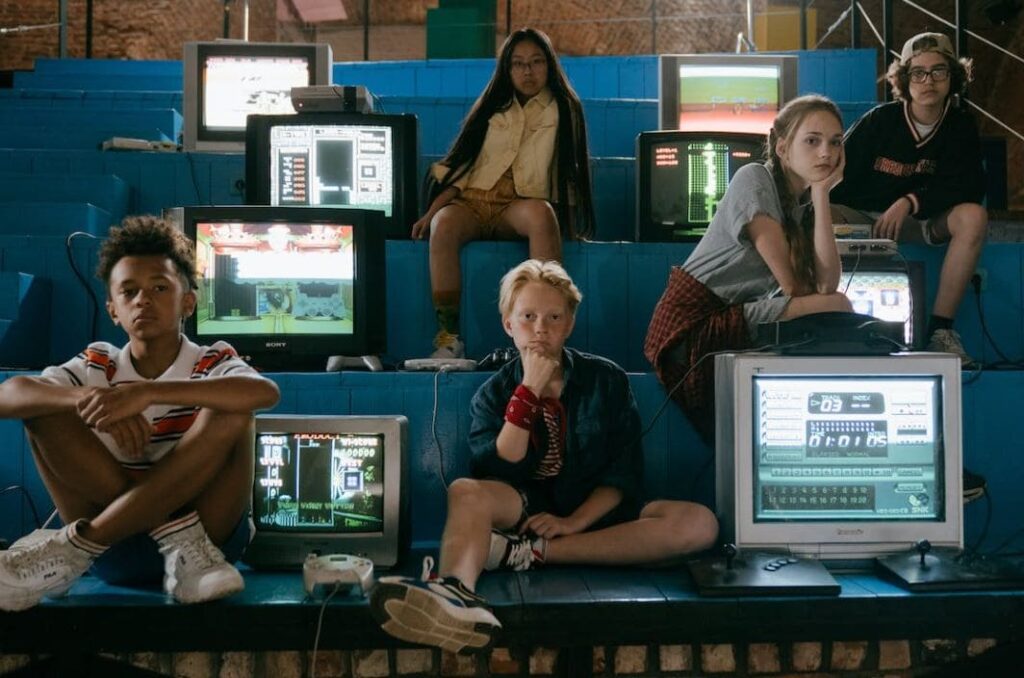Introduction
The impact of violence when people play video games is a debatable issue, considering the presence of contradictory research findings on the topic. The content portrayed and the experiences of the players may have unintended consequences. Playing violent video and online games leads to aggressive behaviors, increases the risk of mass shootings, and contributes to mental health issues despite the controversies on these effects.
Increase in Aggression
One of the main impacts of playing violent video games is the resulting increase in aggressive behaviors. A family environment that exposes children to violence through the media, such as video games, or conflicts at home can lead to aggression among adolescents (Shao & Wang, 2019, p. 2). Thus, ferocious actions in video games can lead to hostile behaviors, especially if the children witness fights in their homes or schools. In contrast, some researchers state that aggression among teens cannot be linked to violent video games but can only be associated with family conflict, actions of peers, and antisocial behaviors (Shao & Wang, 2019, p. 2). Conversely, many studies show that individuals are likely to show hostility if they are exposed to violence in online games, especially if they live in a hostile environment. Thus, gaming portraying ferocious actions is likely to influence aggressive behaviors.

Impact on Mass Shooting
Gaming involving violence is often associated with the increased risk of incidents of mass killings, even though critics argue that there is no strong evidence to support this. Several researchers explain that vicious actions depicted in video games contribute to mass shootings (Kneer & Ward, 2020, p. 3). This position is backed up by the fact that players tend to show more hostility and aggressive behaviors when playing. For example, the killers in the mass shootings that happened on 20th April 1999 in Columbine High School and 1st December 1997 in Heath School all loved playing video games (Kneer & Ward, 2020, p. 2). The brutality and cruelty shown during gaming are believed to have influenced their actions. However, researchers have found that out of the 33 incidents of mass shootings that happened between 1980 and 2014 in schools, only 4 were perpetrated by individuals interested in video gaming (Kneer & Ward, 2020, p. 2). This data shows that there is a weak link between the two variables. Even so, the fact that some of the killers loved playing aggressive video games and that gaming leads to aggressive behaviors shows that violence depicted can contribute to mass shootings.
Anxiety and Depression
Vicious actions seen in video games can cause players to exhibit emotional and psychological problems. Adolescents playing violent games are likely to experience anxiety and depression (Wei et al., 2022, p. 2). Even more, too much gaming may further impact the mental health of gamers negatively. In one study with contradictory findings, playing violent video games was found to have no impact on anxiety and depression among teens since the symptoms were only evident in those who had pre-existing mental health issues (Ferguson & Wang, 2021, p. 72). However, this study shows that aggressive video games may exacerbate the condition. Thus, violence portrayed in games influences the mental health of gamers.
Conclusion
The ferocious actions depicted in some video games contribute to aggressive behaviors, mass shootings, and mental health issues. Taking part in these games serves as a catalyst to these problems because predispositions, such as hostile family environments and psychological issues, are negatively impacted by what the players do or see. Therefore, the vicious actions portrayed influence players in diverse ways despite the controversies in research findings.
References
Ferguson, C. J., & Wang, C. K. J. (2021). Aggressive video games are not a risk factor for mental health problems in youth: A longitudinal study. Cyberpsychology, Behavior, and Social Networking, 24(1), 70–73. https://doi.org/10.1089/cyber.2020.0027
Kneer, J., & Ward, M. R. (2020). With a rebel yell: Video gamers’ responses to mass shooting moral panics. New Media & Society, 23(3), 1–18. https://doi.org/10.1177/1461444819901138
Shao, R., & Wang, Y. (2019). The relation of violent video games to adolescent aggression: An examination of moderated mediation effect. Frontiers in Psychology, 10(384), 1–9. https://doi.org/10.3389/fpsyg.2019.00384
Wei, M., Liu, Y., & Chen, S. (2022). Violent video game exposure and problem behaviors among children and adolescents: The mediating role of deviant peer affiliation for gender and grade differences. International Journal of Environmental Research and Public Health, 19(22), 1-14. https://doi.org/10.3390/ijerph192215400


